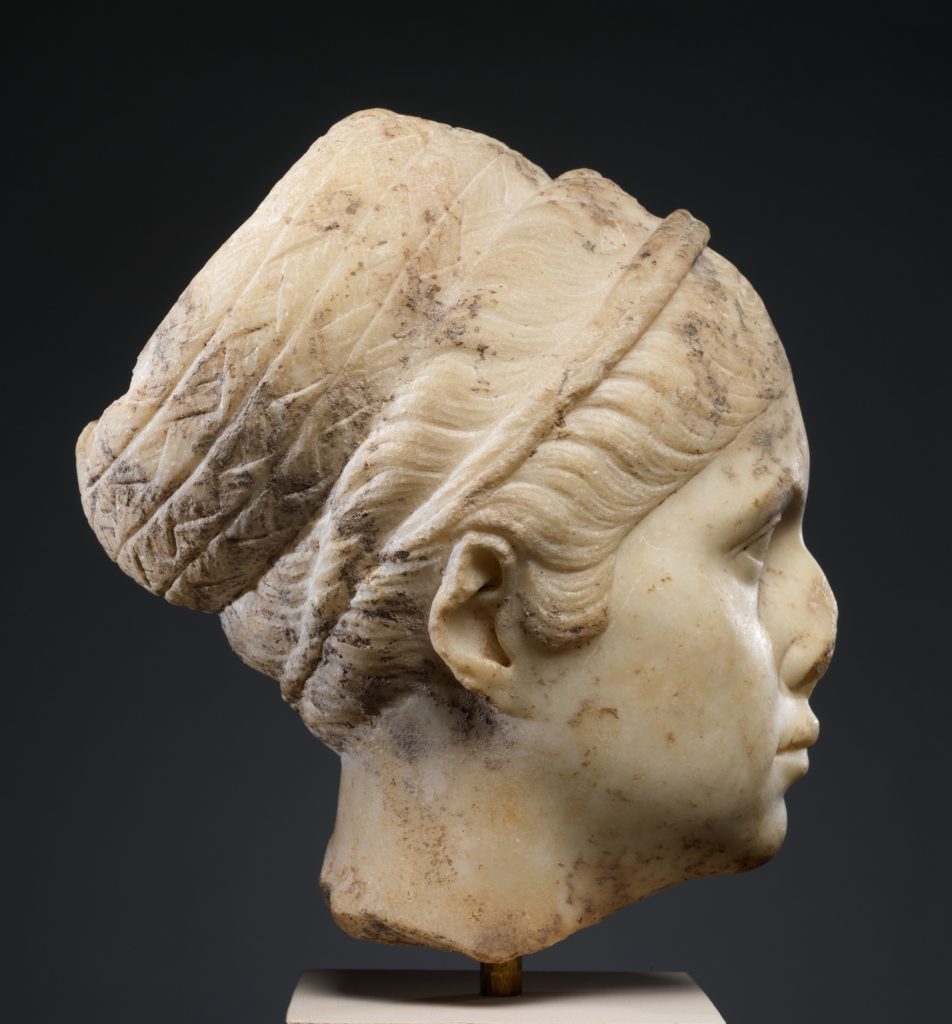The young girl haunts me. I wrote about her in my most recent book, but I guess that didn’t exorcise her. She worries me still; I wonder after her.
In today’s Daily Office extract from Acts, she appears as a cameo figure, a walk-on in Paul’s great journey of evangelism. Although she is telling the truth about Paul and Silas – that they are, in fact, servants of the Most High God and that they do, indeed, proclaim the way of salvation – she does so in a loud and annoying and most persistent manner. She has a spirit of divination; it is not her fault (Acts 16:16-18).
In the gospels, the spirits and demons recognized Jesus, and he ordered them to tell no one who he was, and cast them out (see Mark 1:23-26, for example). Now, the messianic secret is out, and Paul is telling it to anyone who will listen. Still, he also casts out the spirit from the girl.
She has been enslaved, and her gift, her possession, exploited by others for profit. They become angry with Paul for diminishing their income, and had him and Silas arrested, severely beaten, and imprisoned. There we leave them overnight (Acts 16:19-24).
Tomorrow will find a happier ending: having sung a hymn (so loudly or so badly that the walls fell down?), our evangelists find themselves free. Having found themselves free, they are glad enough to have mercy upon their hapless jailer. Having found mercy, he in turn bathes their wounds and feeds them up. They explain to him about Jesus, and he and his whole family are baptized (Acts 16:25-34).
Paul and Silas receive an apology from the authorities for their harsh treatment, having revealed themselves to be Roman citizens. Honour and dignity are restored (Acts 16:35-40).
But we hear no more of the young soothsayer. She has been exploited by others for gain, and admonished by apostles for her annoying and loud spirit. Her gift has been milked dry and has been despised, and she is left without a name or an ending to her story.
In the happiest ending, she is freed by her enslavers, being of no more use to them, and finds her way to Lydia by virtue of the memory of the spirit that told her about the Most High God and the way of salvation. In the happiest ending, she is now embraced by the women of the church whose men been so annoyed by her earlier. In the happiest ending, she comes home.
I worry about her, though, because of what Jesus said about the unclean spirit that wanders through waterless regions before returning to its home and inviting all of its friends in to party, so that “the last state of that person is worse than the first” (Matthew 12:43-45).
It is not enough to cast out. She needs someone to cast in: to cast in hope, to cast in love, to cast in a spirit of peace, to see her for who she is: beloved child.
Most High God, may I cast in today. May I embrace more than admonish, accept more than diminish, love more than I ignore. May your grace seek out the empty woman, and fill her with your grace and your most merciful and tender blessing. Amen.
The Revd Rosalind C Hughes is the Rector of the Church of the Epiphany, Euclid, Ohio, and author of Whom Shall I Fear? Urgent questions for Christians in an age of violence (July 2021), and A Family Like Mine: biblical stories of love, loss, and longing. Read more from Rosalind at rosalindchughes.com.
Image: Marble portrait of a young woman, c. 139-150, Metropolitan Museum of Art, CC0, via Wikimedia Commons

